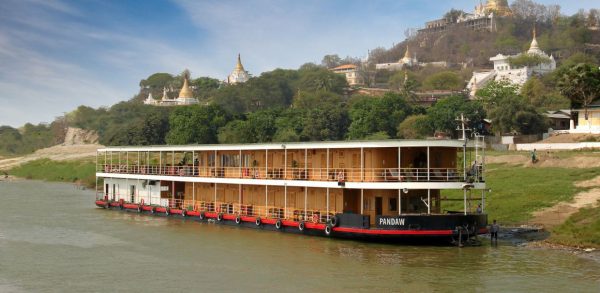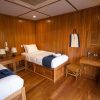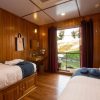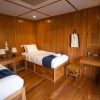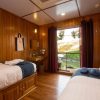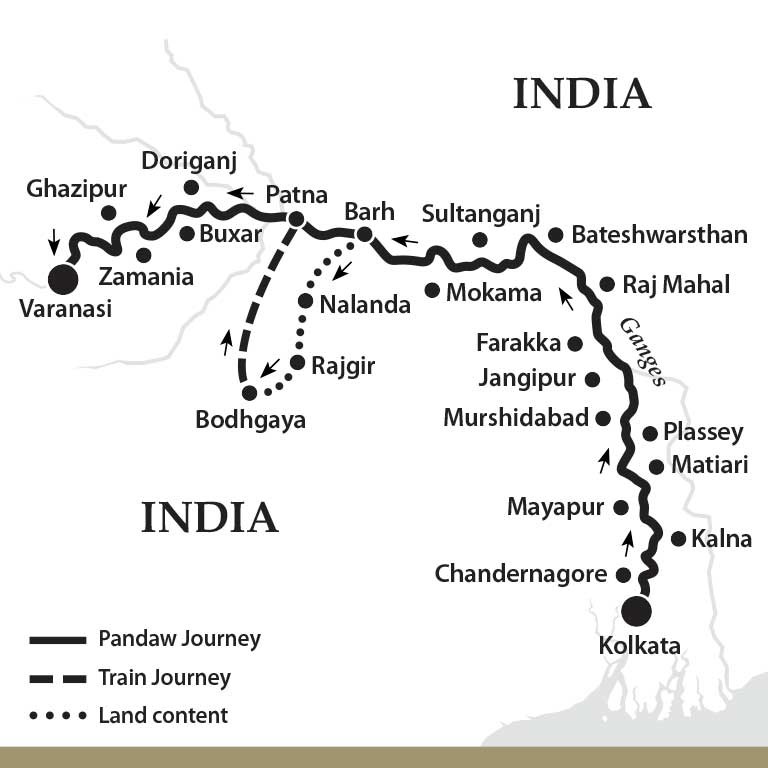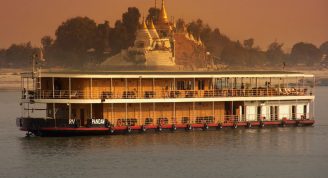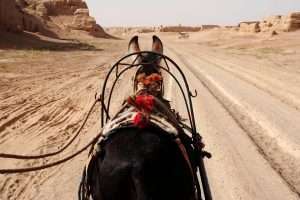Description
In late 2019 we will inaugurate an ‘all Ganges’ voyage of one thousand miles from Kolkata to Varanasi. Though in the days of the British Raj paddle steamers plied this route on a regular basis, with the advent of the railways in India river navigation was abandoned and the rivers were allowed to silt up. Now thanks to a multi-million dollar investment from the Indian Government channels have been dredged and buoyed and hi tech GPS based aids installed enabling seasonal navigation.
Varanasi, said to be the oldest inhabited city on the planet is the most sacred city of Hinduism and a place of overwhelming beauty at the same time poignantly moving with its cremation ghats. Varanasi is surely the goal of any ‘passage to India’ and at the other end of the holy river stands Kolkata, in all its Raj-like magnificence. Between lies several of the most important Buddhist sites including Sarnath, Nalanda and Bodh Gaya and cities great and small and between urban centres and great pilgrim sites are expanses of empty river teeming with bird life, not to mention the Gangeatic dolphin.
No vessel could be more appropriate for a voyage on ‘All the Ganges’ than the much-loved Katha Pandaw, constructed originally in Vietnam in 2008 that has seen service there, in Cambodia and in recent years in Burma. Refitted for expedition sailings in India, we have reduced the number of staterooms from sixteen to fourteen to create an enlarged indoor saloon / dining area as winter cruising in India can be chilly first thing.
Please Note:
This itinerary passes through the state of Bihar. In this state it is illegal to serve any drinks containing alcohol. For this reason we will not be able to serve alcohol onboard the ship while in the state of Bihar. This will affect the Upstream itinerary from day 6 until the afternoon of day 12 and for the Downstream itinerary from day 3 until the afternoon of day 9.


